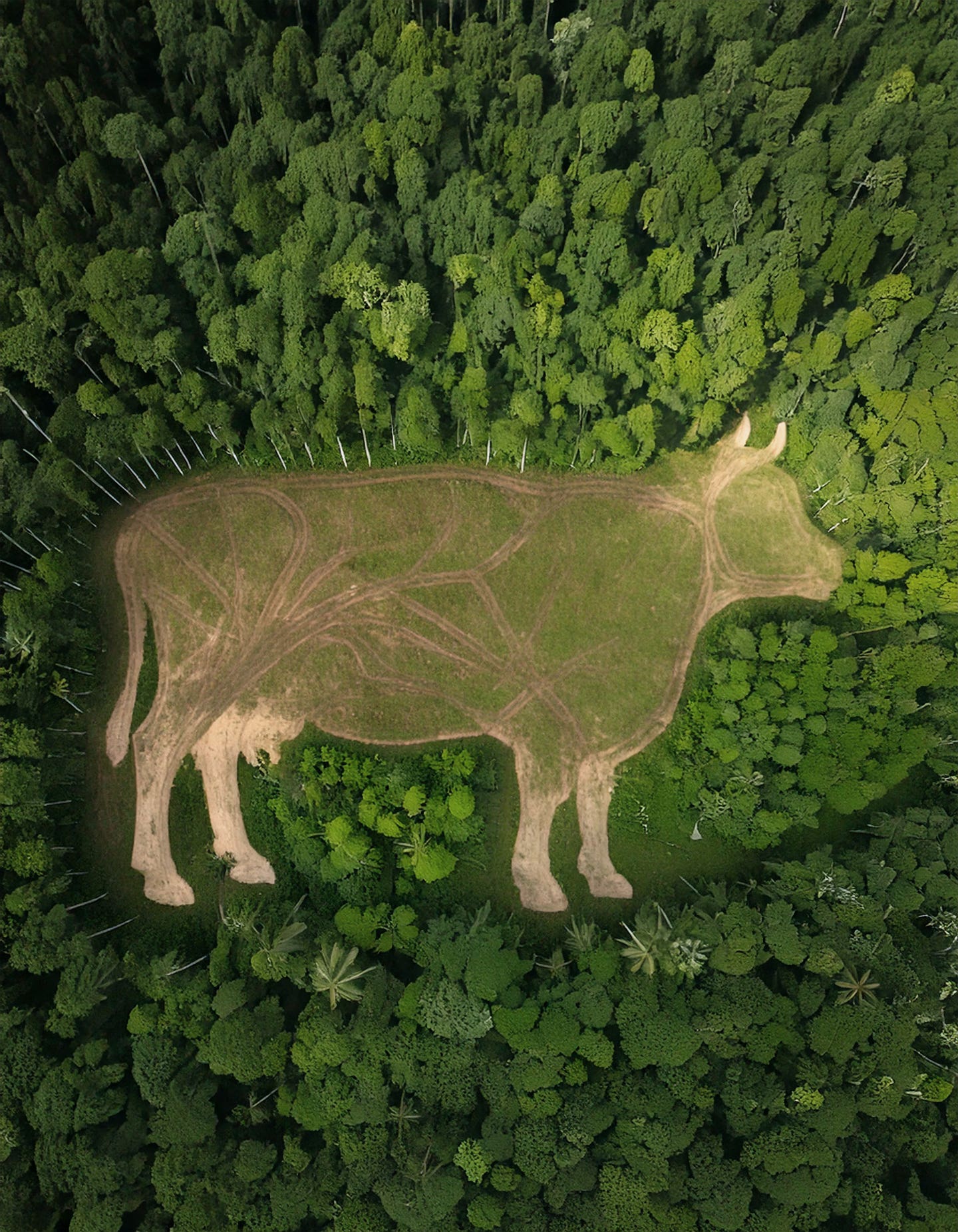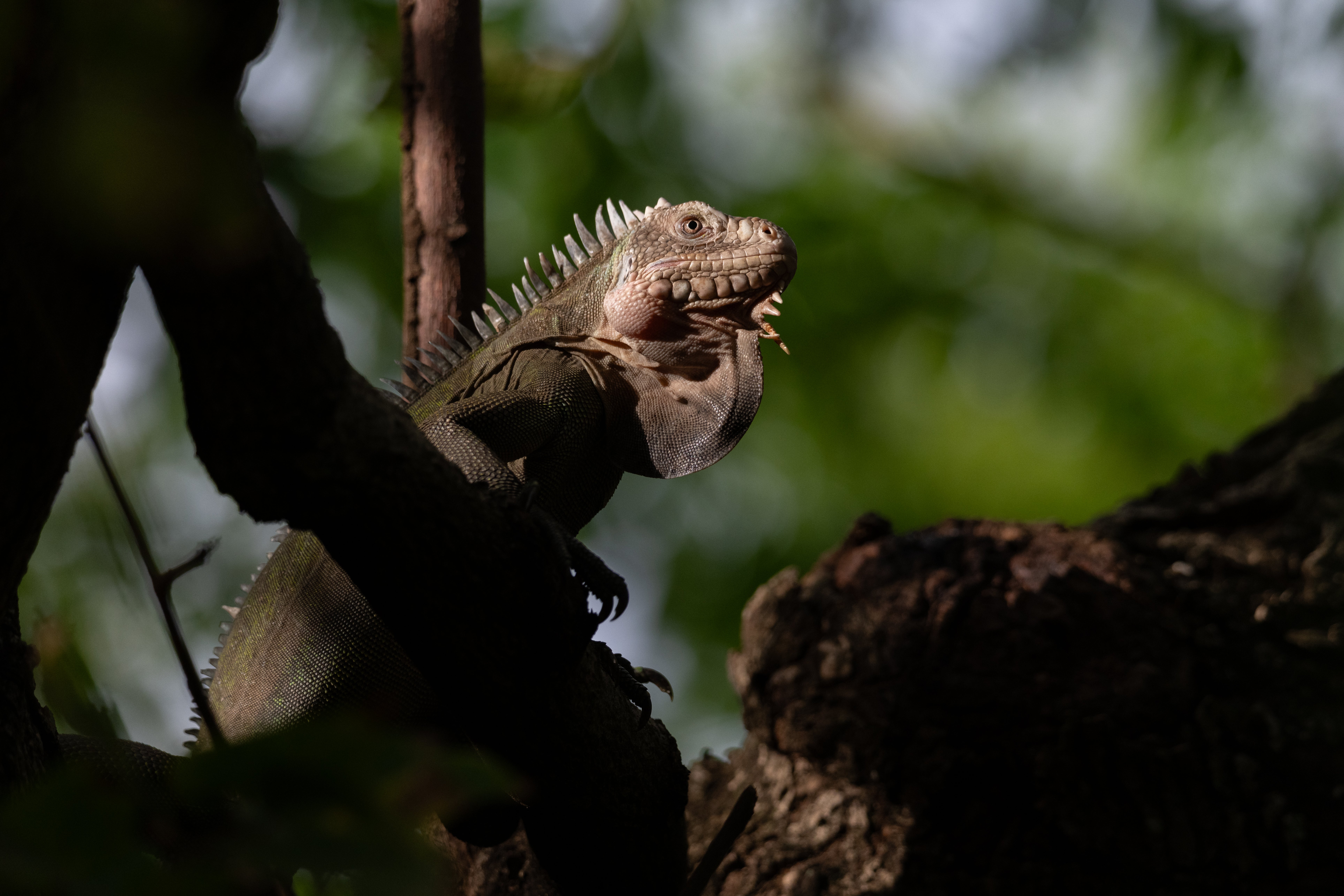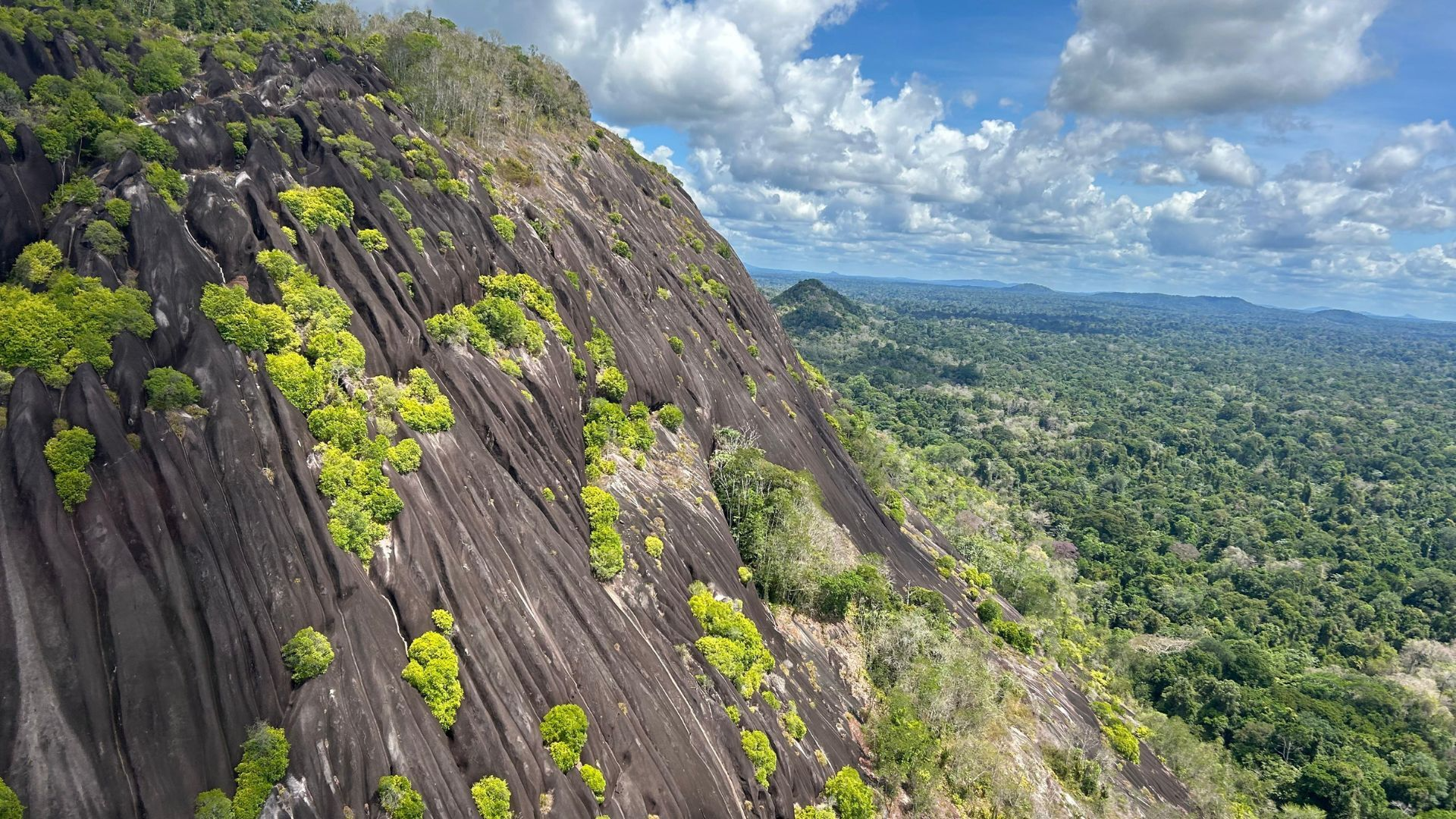For immediate release
October 7, 2025
Download report in English
Download report in Spanish
Download photos and video
Beef from illegal cattle farms in Nicaragua’s protected areas and Indigenous territories could end up on Americans’ plates—despite the Central American country’s claims to have regulations and a traceability system to prevent it—according to a new investigation published today by the PATROL campaign, supported by Re:wild. The report reveals that Nicaragua’s major slaughterhouses are sourcing cattle from illegal ranches and exporting meat to the United States and other markets—making unwitting consumers potentially complicit in rainforest destruction and Indigenous rights violations as ranchers clear forests for cattle and their feed.
“We found that major U.S. retailers may be selling beef that goes against what their customers care about—sustainability, ethics and human rights,” said Camilo de Castro Belli, author of the report and co-director of the documentary PATROL, developed in partnership with Re:wild. PATROL tells the story of Indigenous rangers working to address threats to the Rama Kriol Indigenous Territory located in one of the five largest intact forest blocks remaining in Mesoamerica. “This isn’t just a Nicaragua problem; it’s a global supply chain failure. Fixing it will require urgent action from governments, companies and consumers alike.”
In 2024, Nicaragua was the fifth-largest source of frozen beef imported by the United States, valued at about $204 million, and the fourth-largest source of chilled beef, valued at about $125 million, according to trade data made available by UN Comtrade. The Environmental Investigation Agency (EIA) investigated U.S. beef supply chains and found that beef imported from Nicaragua is commonly blended into lean ground beef products by major meat processors that sell to household name companies like Walmart, Burger King, Sam’s Club, Kroger, Aldi, Applebee’s, Chili’s, Cracker Barrel, Taco Bell and Dairy Queen.
These retailers did not respond to a request for comment on their potential sourcing of beef from Nicaragua, nor did the main importers of Nicaraguan beef in the United States, including Northwestern Meat Inc., Gurrentz International Corporation, Eastern Quality Foods/ASC Meyners, Export Packers Co LTD, and Valley Foods Produce.
Two of the meat processors, Birchwood Foods and FLP Foods, replied, stating that they had received assurances from their suppliers in Nicaragua that their beef did not originate from cattle raised illegally in Indigenous territories or protected areas.
“Our investigation found that beef from Nicaragua is likely ending up in hamburgers and other ground beef products sold by major U.S. fast food chains and grocery stores, with American consumers left in the dark due to weak country of origin labelling rules,” said Rick Jacobsen, senior manager for commodity policy at EIA. “In fairness to U.S. cattle producers who follow the law, importers of beef from countries with widespread illegal ranching and cattle laundering, like Nicaragua, should be subject to strict traceability and legality standards.”
Nicaragua has lost nearly 10% of its primary forests over the past two years and had the highest rate of primary forest loss in the world in 2024, largely driven by the expansion of the agricultural and cattle frontier to meet the growing global demand for beef. Over 92% of the deforestation in Central America’s intact forests is driven by the cattle industry, much of it illegal.
Today’s report focuses specifically on cattle traced back to cattle farms in two Indigenous territories in Nicaragua:
- The Mayangna Sauni Bas Territory in the Bosawas Biosphere Reserve, which is a UNESCO World Heritage site and one of the most biodiverse ecosystems on the planet, harboring around 13% of all known species worldwide. Between 2017 and 2021, the Mayangna Sauni Bas territory lost 16% of its forest cover to animal agriculture.
- The Rama and Kriol Indigenous Territory, which is within the boundaries of the Indio Maiz Biological Reserve, one of the Five Great Forests of Mesoamerica and a Key Biodiversity Area. Indio Maiz provides critical habitat for a number of threatened species, including the jaguar, Baird’s tapir, giant anteater and great green macaw. The total area of humid primary forest in Indío Maiz decreased by 3.5% from 2018 to 2023.
"Illegal cattle ranching is destroying our ancestral lands,” said Armando John Mcrea, a Rama forest ranger. “We depend on the forest to live. If we lose the forest, we lose our livelihood, our culture, and our freedom."
Over eight years, investigators uncovered key cattle laundering strategies, identified how easily illegal cattle are laundered into the traceability system, and documented cases of cattle sourced from Indigenous territories and protected areas ending up in slaughterhouses that export to the United States. They conducted interviews across the supply chain, carried out on-site observations, and collaborated with Indigenous and Afro-descendent communities, as well as former officials from Nicaragua’s agricultural agency (IPSA).
According to the report, a weak traceability system and lack of oversight in Nicaragua has allowed conflict beef to be imported into the United States, blended with domestic beef, and sold, without labeling, to consumers, potentially making them complicit in human rights violations and threats to human health, while putting homegrown U.S. food products at a disadvantage.
The report comes amid growing concerns that Nicaragua’s weak oversight and opaque cattle supply chains may be enabling the spread of screwworm—a flesh-eating parasite—through cattle moving from Central America to Mexico and the United States. Although the parasite was largely eradicated from Central America after decades of the consistent use of a biological control technique, it has now been detected in cattle in multiple Mexican states. This led the United States to temporarily halt cattle imports from Mexico to prevent the spread of the infestation, which would wreak havoc on the United States’ multi-billion dollar cattle industry and could cost over a billion dollars to eradicate.
The report includes a series of recommendations to stop ‘conflict beef’, including an urgent call to the Nicaraguan government to shut down illegal farms and strengthen its traceability system, while calling on the United States to back measures like the FOREST Act, a bill introduced in the last Congress that would ban imports of products, including beef, produced on illegally deforested land.
“Clearing rainforests for beef is one of the most destructive choices we can make,” said Chris Jordan, Re:wild’s Latin America director. “With plant-based and cultivated meat technologies already proving they can help feed the world without slaughtering animals or destroying forests, clinging to cattle ranching in these areas is not just outdated, it’s reckless, as we can see from this report.”
Re:wild and partners have launched an open letter for U.S. consumers to sign urging the companies identified in the report not to buy beef from Nicaragua.
# # #
Photo: Conflict Beef report cover image (AI-generated)
Download photos and video
Re:wild
Re:wild protects and restores the wild. We have a singular and powerful focus: the wild as the most effective solution to the interconnected climate, biodiversity and human wellbeing crises. Founded by a group of renowned conservation scientists together with Leonardo DiCaprio, Re:wild is a force multiplier that brings together Indigenous peoples, local communities, influential leaders, nongovernmental organizations, governments, companies and the public to protect and rewild at the scale and speed we need. Learn more at rewild.org.
PATROL campaign
PATROL is an award winning documentary and global impact campaign that exposes how illegal cattle ranching is destroying Nicaragua’s Indio Maíz Biological Reserve and violating Indigenous rights. The film follows Indigenous Rama and Afrodescendant Kriol forest rangers as they risk their lives to protect one of Central America’s last intact rainforests from “conflict beef,” - cattle raised in protected areas and laundered into global supply chains. The PATROL campaign urges governments, corporations, and consumers to end the sale of beef linked to deforestation, uphold Indigenous rights, and safeguard vital ecosystems for future generations. Learn more at www.patrolmovie.com.
Contact
Lindsay Renick Mayer
Re:wild
lrenickmayer@rewild.org
512-686-6225
Devin Murphy
Re:wild
dmurphy@rewild.org
512-686-6188
Lindsay is the Director of Media Relations for Re:wild and has a particular interest in leveraging communications to inspire conservation action. Lindsay is passionate about species-based conservation and finding compelling ways to tell stories that demonstrate the value of all of the planet’s critters, big and microscopic.




